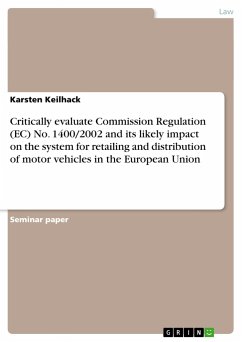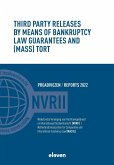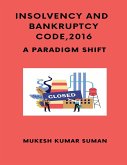Essay from the year 2024 in the subject Law - Civil / Private, Trade, Anti Trust Law, Business Law, , language: English, abstract: The Enterprise Act 2002 revolutionized English insolvency law, prioritizing business rescue over liquidation. This article comprehensively analyzes the act's impact, particularly on secured creditor rights, and its effectiveness in achieving this objective. While acknowledging the positive strides made, it argues for further development to create a truly flourishing rescue culture. Drawing on international best practices and targeted reforms, the article explores potential solutions to enhance transparency, information sharing, and fairness in restructuring processes. Success stories like JJB Sports and Virgin Atlantic are examined alongside challenges presented by data privacy and algorithmic bias. Ultimately, the article advocates for continuous evaluation and a commitment to fostering a robust rescue culture that benefits all stakeholders. The news buzzed with anxiety as yet another beloved retail chain teetered on the brink of collapse. Images of shuttered stores and lost jobs flashed across screens, a stark reminder of the ever-present threat of business failure. For decades, English insolvency proceedings mirrored this grim reality, often prioritizing swift liquidation over potentially life-saving company rescues. Recognizing the devastating consequences of this approach, the EA 2002 emerged as a beacon of hope, its mission: to cultivate a "rescue culture" ¿ a philosophy prioritizing the preservation of viable businesses and the jobs they provide. But did this legislative landmark truly deliver on its promise? This article delves deep into the heart of the EA 2002, dissecting the effectiveness of its reforms and, more importantly, advocating for further evolution in key areas to ensure a truly resilient and compassionate business landscape.
Hinweis: Dieser Artikel kann nur an eine deutsche Lieferadresse ausgeliefert werden.
Hinweis: Dieser Artikel kann nur an eine deutsche Lieferadresse ausgeliefert werden.








